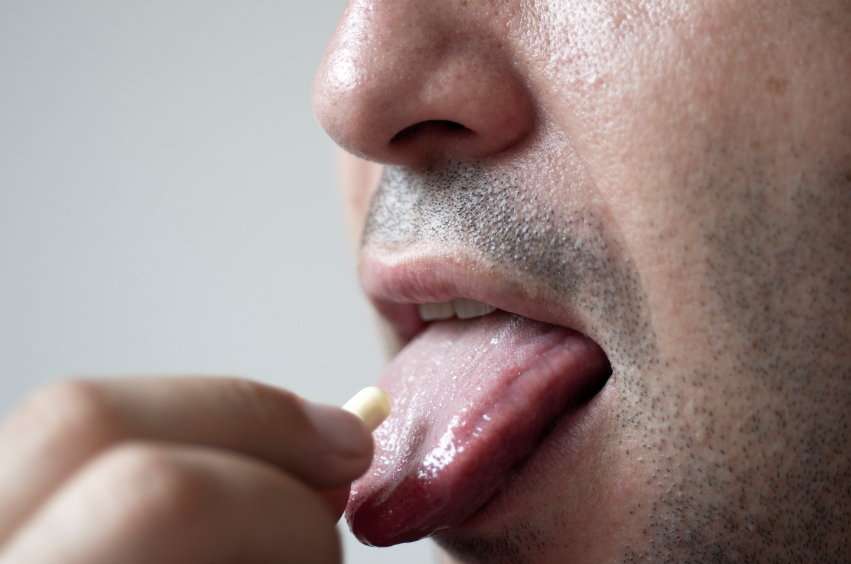Large Finnish Study Finds Lithium is Best at Preventing Re-Hospitalizations in Bipolar Disorder
A 2018 article in the journal JAMA Psychiatry reports that lithium and long-acting antipsychotic injections were most effective at preventing re-hospitalizations among people with bipolar disorder.
The study by Markku Lähteenvuo and colleagues included 18,018 Finnish patients with bipolar disorder. A national database contained information on any hospitalizations that occurred among the patients and what medications were dispersed to patients.
Among the participants, 54% (9,721 patients) were re-hospitalized at least once over a study period of 16 years. Medications associated with the smallest risk of re-hospitalization for psychiatric reasons were long-acting injections of risperidone, gabapentin, long-acting injections of perphenazine, and lithium carbonate.
When the researchers looked at hospitalizations for any cause (not just psychiatric illness), lithium was associated with the least risk of re-hospitalization, while benzodiazepines had the greatest risk, both for psychiatric re-hospitalization and re-hospitalization for any cause.
Long-acting injectable medications were associated with less risk of re-hospitalization compared to the identical medications delivered orally.
Lähteenvuo and colleagues concluded, “Lithium…should remain as the first line of treatment for bipolar disorder, after decades of underprescription.” They suggest that long-acting injectable medications may be a good alternative to prevent relapse in patients for whom lithium is unsuitable.
Editor’s Note: In addition to lithium’s ability to prevent depressions and manias, it also increases the volume of the hippocampus and protects against a diagnosis of dementia in old age. Lithium decreases the risk for suicide and also increases the length of telomeres, bits on the ends of DNA strands that protect them as they replicate, which are important to the maintenance of both physical and psychiatric health. When lithium is used cautiously to maintain doses below a given patient’s side effects threshold, it is very well tolerated by most individuals.
Specific Probiotics Reduce Re-Hospitalizations for Bipolar Disorder
In a 2018 article published in the journal Bipolar Disorders, researcher Faith Dickerson and colleagues reported that in a small study of 66 people who had been hospitalized for mania, taking specific probiotic supplements upon their release reduced re-hospitalizations compared to taking placebo.
The study followed patients for 24 weeks after their hospitalization. They were randomized to receive either the combination of Lactobacillus rhamnosus strain GG and Bifidobacterium animalis subsp. lactis strain Bb12 or placebo in addition to their regular medications. While 17 of the 33 participants in the placebo group (51.5%) had at least one re-hospitalization during the study period, only eight (24.2%) of the participants taking probiotics had a re-hospitalization. The duration of the re-hospitalizations was also shorter for those taking probiotics (2.8 days on average versus 8.3 days for those taking placebo).
In a personal communication to this editor (Robert M. Post), Chris Aiken, Instructor in Clinical Psychiatry at Wake Forest University School of Medicine, who was not involved in the study, provided some clarifying details to this editor about the use of probiotics to reduce manic relapse. Aiken explained, “Apparently, it’s important to get both the right species (e.g. Bifidobacterium lactis) and the right strain (e.g. Bb-12) in choosing a probiotic. The study mentions that one of the strains (Bb-12) is patented and only available in Europe, but it has been licensed to a few U.S. companies.
“I found two products that contain the exact strains in the study and wrote this up for patients: In [the] study [noted above], a probiotic capsule containing Bifidobacterium lactis Bb-12 and Lactobacillus rhamnosus GG lowered the risk of psychiatric hospitalization threefold. [Both] strains are available in the supplement Emergen-C and in a liquid probiotic designed for infants, Culturelle Baby Grow and Thrive. The infant serving would suffice for adults as well. You could also get the two strains by combining two separate probiotic capsules: Align Daily Immune Support and Culturelle Digestive Health Daily Priobiotic.”
Editor’s Note: We are grateful to Dr. Aiken for this added information. We also found that USANA probiotic also contains both strains used in the study. Recent research has found more and more connections between inflammatory processes and mental health. This study contributes to our understanding of the connection between gut health and the brain.
Modafinil May Help Cocaine Users Prevent Relapse
 There is currently no Food and Drug Administration–approved treatment for cocaine addiction. One reason may be that in studies of treatments for cocaine use, participants may have a wide variety of exposure to cocaine. Some may be regularly using cocaine, while others may have gone some time without using the drug. A recent study by Margaret Haney and colleagues addressed some of these challenges by comparing the addiction treatment modafinil to placebo in different scenarios—such as when cocaine users have access to cheap cocaine versus expensive cocaine—and determining under which circumstances modafinil reduces the use of smoked cocaine.
There is currently no Food and Drug Administration–approved treatment for cocaine addiction. One reason may be that in studies of treatments for cocaine use, participants may have a wide variety of exposure to cocaine. Some may be regularly using cocaine, while others may have gone some time without using the drug. A recent study by Margaret Haney and colleagues addressed some of these challenges by comparing the addiction treatment modafinil to placebo in different scenarios—such as when cocaine users have access to cheap cocaine versus expensive cocaine—and determining under which circumstances modafinil reduces the use of smoked cocaine.
In the study, presented at a scientific meeting in 2015, Haney and colleagues reported that among people who were not currently smoking cocaine, modafinil reduced cocaine use compared to placebo, but modafinil did not reduce cocaine use among people who had recently smoked cocaine. Modafinil also reduced cocaine use when the drug was expensive, but not when participants had access to cheap $5 cocaine. According to the researchers, these findings suggest that modafinil may be more useful at preventing relapse than at helping current users of cocaine achieve abstinence.
Editor’s Note: While they are not FDA-approved, two other treatments can reduce cocaine use, according to placebo-controlled studies: the antioxidant N-acetylcysteine (NAC) and the anticonvulsant topiramate.
Collaborative Care and Education Reduces Bipolar Depression
There is increasing evidence that patients with bipolar disorder benefit from special programs or clinics designed to teach them skills to cope with their illness. A 2015 article by Trijntje Y.G. van der Voort and colleagues in the British Journal of Psychiatry evaluated the effectiveness of a Dutch program that provided collaborative care to people with bipolar disorder.
One hundred thirty-eight patients in an outpatient clinic were randomized to receive either treatment as usual or a program of nurse-provided collaborative care that included psychoeducation, problem-solving treatment, systematic relapse prevention contracts, and monitoring of outcomes. These services were managed by mental health nurses. Those patients who received collaborative care had significantly less time with depressive symptoms at the 6-month and 12-month marks, and less severe depressive symptoms at 12 months (all findings with p values less than .01).
There was no significant difference in manic symptoms or treatment adherence. The authors suggest that collaborative care improves treatment for people with bipolar disorder, especially depression, which is most closely linked to impaired quality of life and disability.
Editor’s Note: Given this study and about a dozen others like it, it is time to conclude that psychoeducation and other components of collaborative care noted here are critical to the long-term management of bipolar disorder. Patients and their family members should insist that this be a part of routine care.




